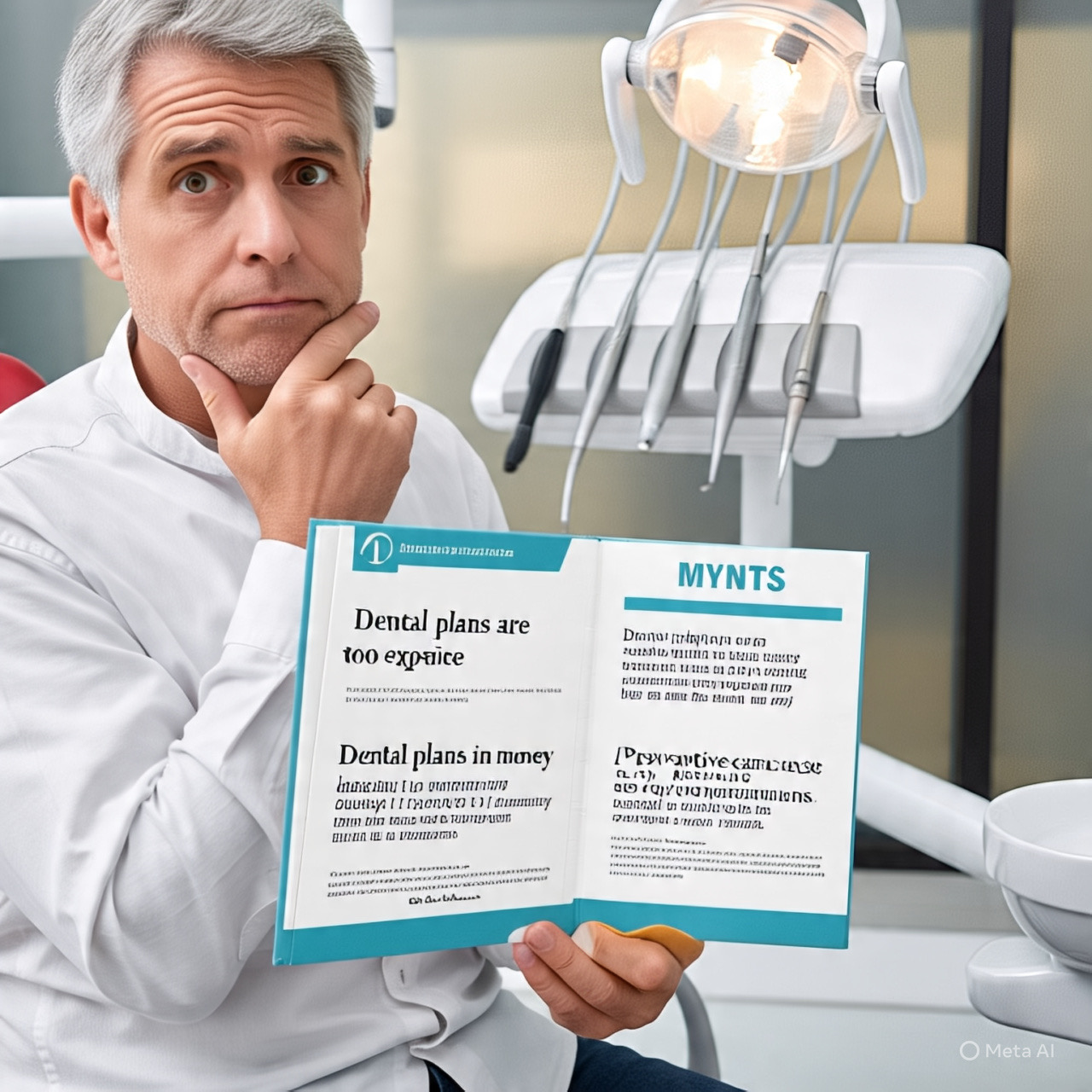Numerous myths and misconceptions in health insurance often surround dental plans. These misunderstandings can lead people to overlook dental plans’ benefits and protections, potentially resulting in inadequate oral health care. It’s important to dispel these myths to fully understand the value of a dental plan and how it can be integral to maintaining oral and overall health. This article delves into the common myths about dental plans and clarifies the topic.
Myth 1: Dental Plans Are Too Expensive
One of the most prevalent myths surrounding dental plans is that they are prohibitively expensive. Although dental care can be costly, dental plans can offer a cost-effective solution to spread these costs over time. Dental plans are intended to make the cost of preventative care—such as routine examinations and cleanings—more affordable by spreading it out over time.
Investing in a dental plan can save money in the long run by emphasizing preventive care, which helps avoid more serious and costly procedures in the future. Consider visiting this resource for more details on dental services in your area. Visit https://www1.deltadentalins.com/areas-we-serve/westvirginia.html to explore affordable dental insurance options and learn how they can fit your needs.
Myth 2: Dental Plans Cover Everything
Another widespread misconception is that dental plans cover every dental procedure in full. While dental plans provide extensive benefits, they generally focus on preventive care and essential services, such as cleanings, exams, and fillings. More extensive procedures, like orthodontics or cosmetic dentistry, may not be fully covered.
Understanding the scope of coverage can prevent surprises when it comes time to visit the dentist. Reviewing your dental plan’s specific terms can help set realistic expectations, allowing for better financial planning when more extensive dental work is required.
Myth 3: Dental Procedures Are Painful Regardless of Coverage
Fear of pain is a common concern that prevents many from seeking dental care. People may argue that whether you have a dental plan or not, dental procedures will always be painful. Modern dentistry, however, has developed numerous techniques and technologies to minimize discomfort during dental treatments. Knowing that those with a dental plan are covered can provide peace of mind and reduce the stress associated with potential pain.
Choosing a skilled and experienced dentist and sharing any concerns about pain management can significantly improve the overall experience. This partnership helps ensure comfort and allows adjustment techniques to reduce anxiety and discomfort.
Myth 4: Insurance Paperwork Is Not Worth the Hassle
Many people shy away from dental plans, fearing the mountain of paperwork associated with insurance. However, most plans today have streamlined their processes, often offering online tools to simplify the submission and tracking of claims. Additionally, dental offices usually have administrative staff who are well-versed in handling insurance paperwork, alleviating much of the hassle for the patient.
Understanding how your dental plan operates and accessing available resources can minimize stress and make using insurance straightforward. Online account management has made it easy to review coverage, track usage, and download necessary forms, fueling convenience in managing dental health.
Myth 5: Dental Health Doesn’t Affect Overall Health
Some believe that oral health is isolated from general health, but this is a myth that can have severe consequences. Dental health is closely connected to overall health, with studies showing that poor oral hygiene can contribute to systemic issues like cardiovascular disease, diabetes, and respiratory infections. A dental plan emphasizes preventive care, safeguarding against such health complications by promoting regular dental visits and maintenance.
Maintaining oral health isn’t just about preserving a smile; it’s vital to overall wellness. Regular dental check-ups provide an opportunity to detect early signs of conditions that might otherwise go unnoticed, ensuring timely intervention and treatment.
Myth 6: Dental Plans Are Not Versatile
Contrary to the myth that dental plans are inflexible, they often incorporate a degree of adaptability and choice, allowing individuals to select coverage that best aligns with their needs. Options for different coverage levels mean enrollees can choose the plan that best suits their lifestyle and dental health requirements.
Reviewing the options and selecting a plan based on personal dental health goals can maximize the benefits received, ensuring appropriate coverage while balancing costs. It’s essential to evaluate the dental products available and make informed choices that coincide with your budget and anticipated dental care needs. When choosing a dental plan, consider the network of dentists available and the coverage for preventive and primary dental procedures. Look at the plan’s flexibility in covering emergency care and specialized services like orthodontics. By understanding the benefits and limitations of each option, you can choose the most appropriate plan that meets both your health needs and budgetary requirements. This approach ensures that you receive comprehensive care without unexpected out-of-pocket costs.
Conclusion
Understanding dental plans and debunking common myths associated with them is crucial for making informed decisions regarding oral health care. While misconceptions exist, the reality reveals that dental plans can be affordable, flexible, and beneficial beyond just dental care. They play a significant role in enhancing overall wellness by promoting preventive practices and supporting broader health standards.
Investing time to learn about different aspects of dental plans, like available services and coverage, allows individuals to choose to cater to their unique needs. Emphasizing the truth about dental plans encourages proactive dental health management, moving away from the misconceptions that might otherwise hinder these valuable services.
